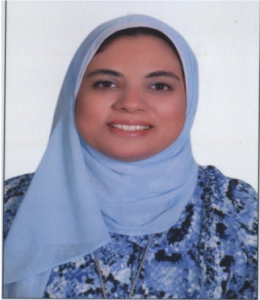Heba Elsayed, a postdoctoral scholar in the Division of Speech and Hearing Sciences, has joined autism spectrum disorder (ASD) researcher Linda Watson to continue research Elsayed began at Alexandria University in Egypt.

Prior to moving to the United States with her family, Elsayed worked as a lecturer of phoniatrics, in the Otorhinolaryngology Department at the Faculty of Medicine at Alexandria University, where she completed both her master’s degree and PhD.
“I was hoping to search for a place where I could enrich my research experience,” Elsayed said. “Through my search, I found Dr. Watson.”
Part of Elsayed’s work with Watson includes Parents and Infants Engaged (PIE), a study funded by the National Institute for Child Health and Human Development, to identify early signs of developmental problems in infants from 11 to 16 months of age and test a new parent-mediated intervention for these children and their families. She also is analyzing previously collected data to better understand the early development and functional impact of sensory and social-communication features associated with ASD, and how these may influence a child’s response to intervention.
PIE is an initiative of the Program for Early Autism Research, Leadership, and Service (PEARLS). She will work with these projects and others during her two-year stay, after which she hopes to continue research and academia.
“I’m lucky I had the chance to continue here in a field that was related to my previous experience,” Elsayed said. “I can continue this same line of research and explore the different assessment tools.”
Elsayed has translated existing tools for ASD diagnosis into Arabic, and she hopes to continue to broaden resources for families who have a child diagnosed with ASD. She said she saw a need for these tools in her department in Alexandria.
“It can be shocking for parents to hear this diagnosis,” Elsayed said. “It takes them some time to overcome this and to manage their children later on. Facing this with a child is similar between the two cultures.”
Elsayed said interdisciplinary support has allowed her to expand her network, including among partners at the Frank Porter Graham Child Development Institute and the Carolina Institute for Developmental Disabilities.
“It’s very beneficial for this work to have this kind of diversity,” Elsayed said. “It gives more enrichment to the research work that’s done.”
Elsayed said her time in the United States has so far given her a different perspective on research and interacting with families who have a child with ASD.
“The earlier the intervention, the better the prognosis,” Elsayed said. “Offering any kind of intervention for families and their children is going to be helpful to improve their prognosis later on […] I’m thankful to be working with Dr. Watson. She’s the one who gave me the chance; she is continuously supporting me and encouraging me to go further.”
Linda Watson, EdD, is a professor in the Division of Speech and Hearing Sciences, one of seven divisions in the UNC School of Medicine Department of Allied Health Sciences.